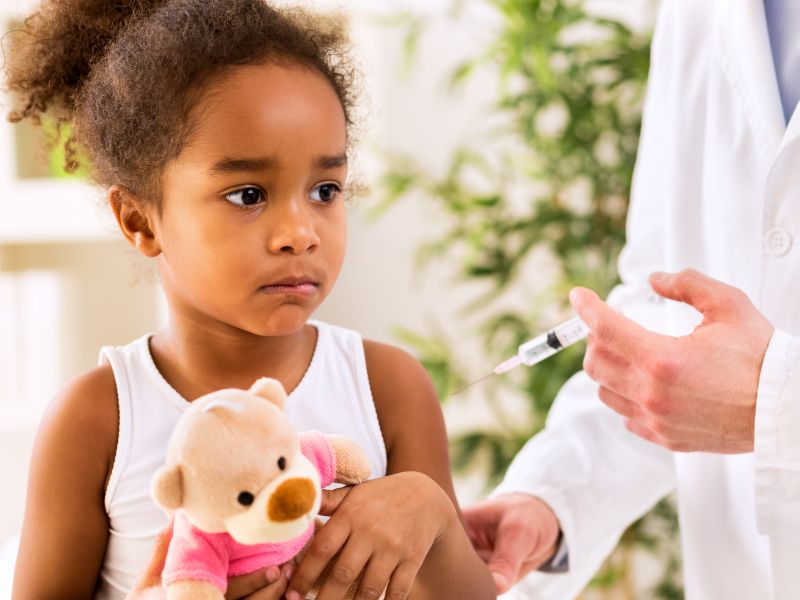Paid Family Leave Helps Keep Babies' Vaccines on Track: Study

MONDAY, Sept. 23, 2019 (HealthDay News) -- Children whose parents take paid family leave when they're born are more likely to get vaccinated at the recommended ages, a new study finds.
"Currently, many people do not vaccinate their child within the recommended schedule and are late," said study co-author Solomon Polachek, a professor of economics at the State University of New York at Binghamton.
"Often this might be due to parental time constraints. When an infant is really young, these immunizations are critical, since infants are at a higher risk of infection and illness if not vaccinated properly," Polachek explained in a university news release.
His team analyzed vaccination rates among 19- to 35-month-old children in California before and after the state implemented a paid family leave policy. It grants private-sector employees up to six weeks of leave with partial wage replacement to care for a newborn.
California introduced the policy in 2004, the first state to do so.
After it went into effect, late vaccination rates in infants fell, and the association was stronger among families below the poverty line, according to the study published recently in the IZA Institute of Labor Economics journal.
Vaccinations studied included hepatitis-B (HepB), diphtheria-tetantus-pertussis (DTP) and hemophilus influenza Type B (HIB).
"The research finds that paid family leave [at least in California] increases the chance an infant will be inoculated for the second HepB injection by over 5% relative to states not implementing paid family leave, and for the DTP injection by about 1.5%," Polachek said.
"The effects are bigger for poorer families, who are less likely to have access to paid family leave from their jobs alone," he added.
Along with overall protection, vaccines can protect infants against diseases that can damage their future attendance and achievement at school, which can have long-term consequences on work and income, Polachek noted.
"Paid family leave might be a viable national policy if it mitigates these detrimental effects," he said.
More information
The U.S. Centers for Disease Control and Prevention has more on childhood vaccinations.

The news stories provided in Health News and our Health-E News Newsletter are a service of the nationally syndicated HealthDay® news and information company. Stories refer to national trends and breaking health news, and are not necessarily indicative of or always supported by our facility and providers. This information is provided for informational and educational purposes only, and is not intended to be a substitute for medical advice, diagnosis, or treatment.

